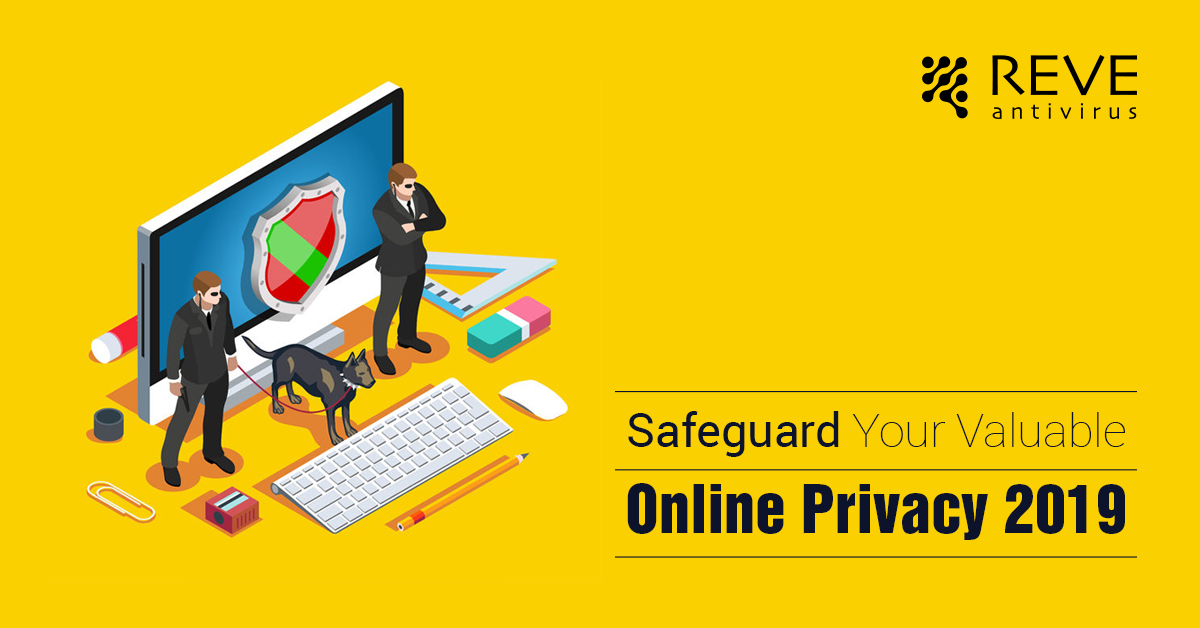 If you are reading this blog right now, it means that you are on the internet. Millions of web users browse the internet every second, and this simply means “safeguarding online privacy is important”.
If you are reading this blog right now, it means that you are on the internet. Millions of web users browse the internet every second, and this simply means “safeguarding online privacy is important”.
The privacy of internet users on the web is less secure than they actually think. The security breaches and vulnerabilities have become a major part of our everyday lives and it’s important for every internet user to understand the basics. However, online privacy is often taken for granted by the internet users.
While there is no such thing called “perfect” security, there is a long list of things that can be done to safeguard your online privacy.
Follow these smart tips to protect your valuable online privacy in 2019.
Install Top Antivirus Software
Antivirus software is very important for any laptop or mobile device, no matter it’s connected to the internet or not. In order to safeguard your online privacy, there are many affordable antivirus software available out there, so you have no excuse for not using one. Having top antivirus software installed and keeping it updated can help you prevent against online fraud or damage on the device.
Use Two-factor Authentication
Also known as two-step verification or multi-factor authentication, two-factor authentication (2FA) is one of the most popular ways of adding an additional layer of protection to internet user’s online privacy. It supplements the password and username model with a temporary code that only a specific user has access to. 2FA works in an incredible way to keep hackers away from accessing your online accounts, although many internet users feel it too time-consuming. However, a little effort can create a world of difference in vulnerability.
Beware of Phishing
You should always stay alert and keep a close eye on emails, texts or phone calls asking for your personal information. Never open a message or click on a link sent to you via email or text from an unknown source. In case, you receive a text or link from someone you know, always cross check if the person has actually sent it or not. Doing this is important, because you may not even know when you are hacked and become a victim of cyber-attack. Sometimes, assuming the worst is the best option!
Create Strong Passwords
This is more of a general tip and you must have heard it many times before, but creating long, complex, and unique passwords for all your online accounts is one of the best ways to safeguard your online privacy. Never use the same password for your different accounts, as this can be dangerous. Also, try to change your passwords every six months for better protection.
Did we miss any important tip that you think other readers should be aware of? Let us know in the comment section and we will add them to the list.
- RaaS : The Dark Side of SaaS
- Hackers Target MOVEit Transfer’s Zero-Day Vulnerability, Emergency Patch Deployed
- How Scammers Are Utilizing ChatGPT? Few Tips To Be Safe
- World Backup Day: Why Data Backups are Important in Cybersecurity
- What is Social Engineering and How Cyber Criminals Use It
- Things To Know About Personally Identifiable Information (PII)
- What is Data Breach? Why and How It occurs? How To Prevent Data Breach


